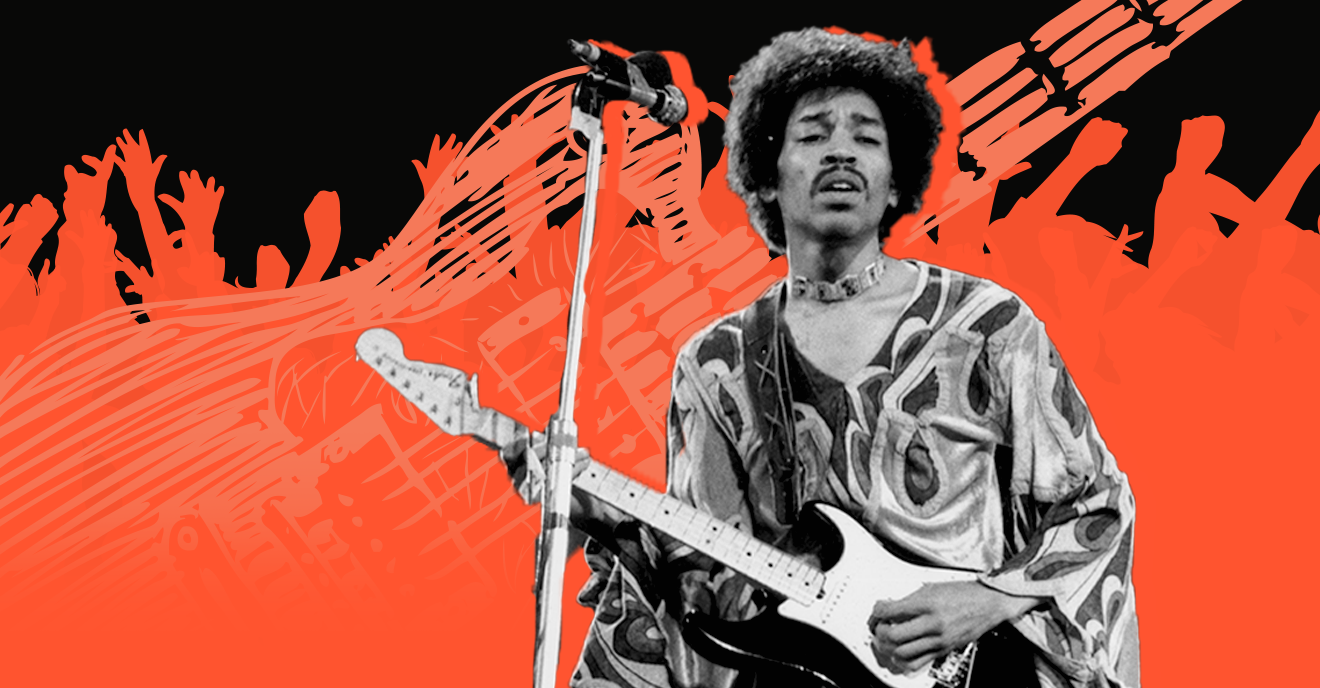I'm not a huge tennis fan, but I can tell you a thing or two about Serena Williams. Boxing isn't my thing either, but I can highlight key moments in Mike Tyson's career. When it comes to golf, Tiger Woods is my guy, but don't ask me anything about the game itself. Each icon mentioned has planted a seed in my expanding interests and created strong Black presences in relatively white spaces. Now, the legendary Jimi Hendrix has pulled me deeper into rock 'n' roll.
To be frank, rock 'n' roll is Black music. It evolved from what the industry called "race music" — the bluesy jazz-gospel-country sounds of the late 19th century and onwards. However, how many Black rock bands get shine nowadays? The genre has pretty much been whitewashed, and because of this whitewashing, it's important to remember the voices that led the way. Hendrix's guitar is one of the greatest of those voices. Even though several Black rock musicians paved the way for him — Chuck Berry, Frankie Lymon and Little Richard, to name a few — there is something different about Hendrix; something that didn't occur to me until it was the anniversary of his death on September 18: He's one of the few trailblazing Black rock artists whose music I don't know.
I know Little Richard's "Tutti Frutti" and Frankie Lymon's "Why Do Fools Fall In Love." I even get hyped to Chuck Berry's "Run, Run Rudolph" every time I watch the classic Home Alone, and can sing along to his hit song "Johnny B. Goode," but I don't know any Jimmy Hendrix tracks — that bothers me.
I thought, "Certainly I've been unknowingly jamming to a Hendrix hit." However, after hours listening to a popular online Jimi Hendrix playlist, only the intro to "Purple Haze" slightly rang a bell. Ultimately, I don't know this man's music and it's a shame. Jimi Hendrix is not just a dope guitarist. He's the best to ever do it, and I know this because it's a fact. Even when Rolling Stone put a panel of experts together to list the 100 greatest guitarists of all time, Hendrix ranked at number one. After spending hours listening to his music and bingeing on articles about his life, it's no surprise he's highly regarded. He plays a huge part in the modern rock 'n' roll sound.
"Jimi Hendrix explored our idea of what rock music could be: He manipulated the guitar, the whammy bar, the studio, and the stage," guitarist Tom Morello wrote in Rolling Stone.
When I listen to Jimi Hendrix, I hear the scratchy riffs, runs, fuzz and electric feedback that modern rock bands like Nirvana, Aerosmith and Metallica use. Hendrix didn't just strum a guitar real nice; he experimented with a sound that would redefine an entire music genre. Even more impressive, he taught himself how to play the guitar at 16 years old, and never learned to read music. Maybe that's why his performances feel effortless. Hendrix's 1969 national anthem performance at Woodstock — a year before he died — is one of the most iconic renditions of "Star-Spangled Banner" (and among the best I've ever heard). How he inserted the fallen soldier song "Taps" into the anthem is beyond me.
YouTube | EDUARDO DYABLO
Hendrix was not reading or reciting his chords, he felt and emoted them. Before his death anniversary, I knew that he lived to be 27 and was born in Seattle, Washington. I heard that he was nice on the guitar, enlisted in the military, toured in London, came back to the U.S. and got more famous. Now, listening to his music, he feels like real life. He feels like Black excellence. He connects us to a musical genre that we are scarcely recognized in. Though his story is much more than I know, his music is tangible and awesome. Every Black millennial should have a favorite Jimi Hendrix song because whether he's letting his freak flag fly in "If 6 Was 9" or showing off his guitar work in "Voodoo Child," Jimi Hendrix is a vibe.

